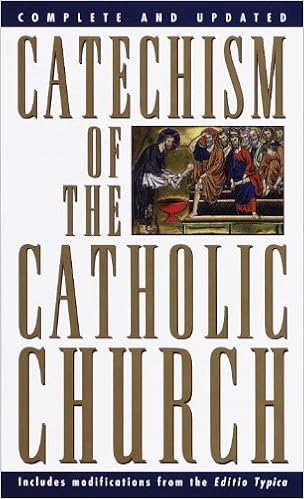ASK FATHER: Non-standard form for Confirmation – valid?
 From a reader…
From a reader…
QUAERITUR:
Yesterday I acted as sponsor for a person receiving Confirmation. I noticed that the bishop, at the moment of anointing the candidates with the sacred chrism, did not say the standard formula. The bishop (a native English speaker, speaking in English) said, “Be sealed in the gifts of the Holy Spirit.” (He repeated this same nonstandard formula over and over for dozens of candidates. I heard him both through the microphone and directly up close.) Is that sufficiently similar in meaning to the prescribed formula to be valid? The bishop did all sorts of other nonsense during the Mass that made a mockery of Catholic liturgy, and I was very annoyed by it, but is this change to the essential sacramental formula bad enough that I should report it to the appropriate congregation at the Vatican?
Let’s review, because reviewing helps.
All sacraments have both matter and form. For the Sacrament of Confirmation the matter is the laying on of hands and the anointing with chrism. In 1971, Paul VI issued in his Apostolic Constitution Divinae consortium naturae a new rite of Confirmation and he designated as the form: Accipe signaculum doni Spiritus Sancti… Be sealed with the Gift of the Holy Spirit.” In the Byzantine East the form is virtually the same, including singular “gift” (δωρεᾶς, genitive of ἡ δωρεά) except that different parts of the body are anointed. The older, traditional Latin Church form is also valid: “Signo te crucis: et confirmo te Chrismate salutis, in nomine Patris, et Filii, et Spiritus Sancti. … I sign thee with the Sign of the Cross, and I confirm thee with the Chrism of salvation, in the Name of the Father, and of the Son, and of the Holy Ghost. Amen.”
 The Catechism of the Catholic Church covers the Sacrament of Confirmation in 1285 ff. Everyone should own a copy. More HERE.
The Catechism of the Catholic Church covers the Sacrament of Confirmation in 1285 ff. Everyone should own a copy. More HERE.
Does “Be sealed with the gifts of the Holy Spirit” mean the same thing as “Be sealed with the Gift of the Holy Spirit”?
In general, the “gifts of the Holy Spirit” are understood to be, “Wisdom, Understanding, Knowledge…”, etc., which are bestowed with the indwelling of the Holy Spirit in the soul with sanctifying grace. They are a result of the indwelling of the Spirit. “The gift of the Holy Spirit” could include the “gifts of the Holy Spirit”, and more. Each sacrament has its effects. In the CCC 1303 we read that one of the effects of the sacrament of Confirmation is that “it increases the gifts of the Holy Spirit in us”. I suppose that we can conceive of all the effects to be one with the Holy Spirit’s indwelling. But…the Latin form has singular “doni”, genitive singular of donum. The Greek has the singular. I don’t know if “gifts” is valid or not. Perhaps you could – respectfully – ask the bishop if it means the same thing before you write to the Congregation. In general, which every Catholic always has immediate recourse to the Holy See in these matters, it is best to work your way up with questions rather than start at the top.
It grieves me some priests and bishops do not use the sacrament form as it is written in the book. People who are in attendance can read it in the book or the handout. People who are paying attention and who have basic catechism scratch their heads when the book says one thing while the minister of the sacrament says another.
Catholics with a fundamental knowledge of their basic catechism know that our sacraments have both matter and form and that the form matters, if you get my drift. For a sacrament to be valid, a valid form – the words spoken – must be used. The valid form is laid down by the Church. It is not up to individual priests or bishops to determine what the valid form is. Priests and bishops are obliged by law and all that is good and holy to use the proper form.
I don’t think that most bishops and priests who screw around with sacramental forms are being malicious. I think that, for the most part, they are trying to make the rite more “meaningful”, even though they have zero authority to change the words.
If it comes to their attention that people are confused by what they do, then it is a horrible lack of charity to continue to upset people by using a non-standard “form” for sacraments, thus raising doubts in their minds:
“Was I really absolved? Was I really confirmed? Is that really the Eucharist up there? Was my child really baptized?”
Fathers, please just stick to the book for the form of sacraments.
If you have to review, then, for the love of God, review. Just…
The moderation queue is ON.

